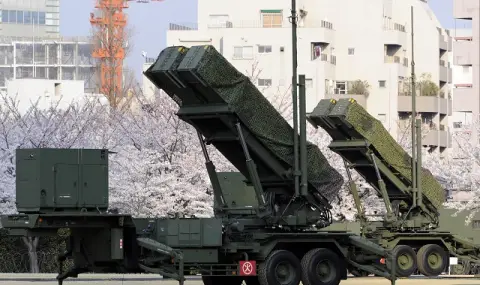The international coalition providing military support to Ukraine must not waver, US Defense Secretary Lloyd Austin urged today, at a time when Kiev fears it will lose US support after Donald Trump returns to the White House, Agence France-Presse reported, quoted by BTA.
„The coalition supporting Ukraine must not waver. It must not weaken. And it must not fail,” said Austin, who last chaired the Kiev Partners Contact Group at Ramstein, a US air base in Germany.
“The US has always been a reliable partner, and will continue to be so in the future [...] Our values have not changed, nor has our commitment to our allies and partners“, the minister assured.
Washington and Berlin have pledged more aid to Ukraine, with the embattled country’s allies meeting with Ukrainian President Volodymyr Zelensky at the US Ramstein Air Base in Germany today to discuss the aid, DPA reported.
The US said it was providing Ukraine with additional military aid worth $500 million. dollars to help fight the ongoing Russian invasion, shortly before US President Joe Biden leaves office.
The US defense secretary made the announcement at a meeting in Ramstein.
The package includes air defense munitions as well as ammunition and technical support for F-16 fighter jets in service with Ukraine, he said. It could be the last aid package before Biden hands over power to President-elect Donald Trump on January 20.
According to reports from Washington, Ukraine will have received a total of nearly $65 billion in military aid from the US to counter a full-scale Russian invasion.
Ukrainian officials fear that US support for Ukraine could wane after Trump takes office on January 20. Trump's policy toward Ukraine is unclear as he has expressed his intention to end the war.
The conference was attended by representatives of the roughly 50 members of the Contact Group, as well as NATO Secretary General Mark Rutte, the head of European diplomacy Kaia Kallas and Ukrainian Defense Minister Rustem Umerov.
Meanwhile, Germany will provide Ukraine with additional guided missiles for its IRIS-T air defense systems at short notice, German Defense Minister Boris Pistorius told the meeting.
The missiles were ordered for the German army, but will instead be sent to Ukraine to help repel persistent Russian air attacks, Pistorius said. He declined to say exactly how many missiles would be delivered.
“We are delivering to Ukraine first before we replenish our stocks,“ Pistorius said.
In the coming weeks, Germany will send another 200 soldiers and two batteries of “Patriot” air defense systems in Poland to protect a NATO logistics center used to transport military aid to Ukraine.
According to Pistorius, the force will remain in Poland under joint NATO command for about six months.
During the meeting, Zelensky urged his allies to support the production of combat drones in Ukraine.
The Ukrainian president said that the use of drones had changed the way wars were fought and that Ukraine's rapid expansion of its capabilities to use them was helping to repel Russian attacks.
“Please invest in this force of Ukraine,“ the president urged.
Zelensky also asked the Contact Group for more air defense systems, especially after devastating Russian air strikes, including one yesterday in the city of Zaporizhia that killed 13 people.
He urged his allies to impose even tougher sanctions on the Russian energy sector to reduce Moscow's revenues.
Pistorius thanked Austin, who has coordinated the regular meetings of the Contact Group since April 2022. Pistorius credited Austin with "outstanding leadership" and said it was now up to everyone to keep the Contact Group on Ukraine alive.
NATO Secretary-General Rutte also called for continued military support for Ukraine after nearly three years of war, warning that reduced support could embolden countries like China, North Korea and Iran.
“We must do everything we can to make sure that Ukraine has what it needs in terms of training, in terms of equipment [...] to prevail in this fight,“ Rutte said.
He said it was crucial that Ukraine be put in the best possible position to eventually start talks with Russia to resolve the conflict on its own initiative.
Rutte warned that China, North Korea and Iran would take note and potentially take advantage if those talks did not lead to a good agreement. The NATO chief added that the war was not just about Ukraine but also about the broader geopolitical context.
Rutte initially did not comment on Trump’s recent demands that European NATO allies spend 5 percent of their GDP on defense, a significant increase from the current target of 2 percent.
He only stressed that support for Ukraine included burden-sharing. Rutte also praised Germany’s commitment.
„So far, Germany has provided nearly 30 billion euros ($30.9 billion) in support of training and equipment for Ukraine,“ he said.
Ramstein is the largest US air base outside the United States and has hosted such meetings since Russia began its invasion of Ukraine almost three years ago, DPA reported.
